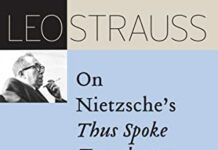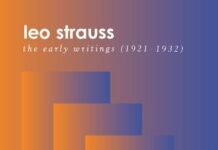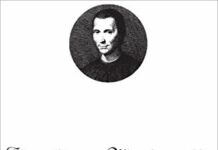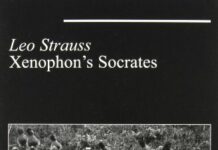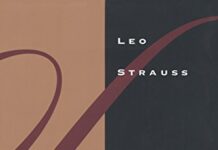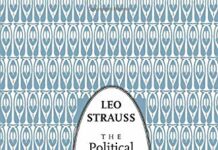
Ebook Info
- Published: 1988
- Number of pages: 316 pages
- Format: PDF
- File Size: 12.01 MB
- Authors: Leo Strauss
Description
All political action has . . . in itself a directedness towards knowledge of the good: of the good life, or of the good society. For the good society is the complete political good. If this directedness becomes explicit, if men make it their explicit goal to acquire knowledge of the good life and of the good society, political philosophy emerges. . . . The theme of political philosophy is mankind’s great objectives, freedom and government or empire—objectives which are capable of lifting all men beyond their poor selves. Political philosophy is that branch of philosophy which is closest to political life, to non-philosophic life, to human life.—From “What Is Political Philosophy?” What Is Political Philosophy?—a collection of ten essays and lectures and sixteen book reviews written between 1943 and 1957—contains some of Leo Strauss’s most famous writings and some of his most explicit statements of the themes that made him famous. The title essay records Strauss’s sole extended articulation of the meaning of political philosophy itself. Other essays discuss the relation of political philosophy to history, give an account of the political philosophy of the non-Christian Middle Ages and of classic European modernity, and present his theory of esoteric writing.
User’s Reviews
Editorial Reviews: From the Back Cover The matter collected in this volume has all been published before, but not all of it in the English original. ‘What is Political Philosophy?’ is a revised version of the Judah L. Magnes Lectures, which the author delivered at the Hebrew University, Jerusalem, in December 1954 and January 1955. About the Author Leo Strauss’s contributions to political philosophy include Natural Right and History, Persecution and the Art of Writing, and Platonic Political Philosophy, all published by the University of Chicago Press.
Reviews from Amazon users which were colected at the time this book was published on the website:
⭐Great Book
⭐Great book
⭐Bought a second hand book at the loosest price,Received a book that was bettervthan a new one.No exaggeration.
⭐good book, good seller!
⭐Philosophy could be the whole topic about everything, but politics has so much history that sorting anything out brings to mind times and places that we might love or hate, but very few upright scribblers need apply for the few positions that get big rewards or end up being despised. Hobbes and Locke wished for ideas that could be sorted out, but Leo Strauss finds some confusion about basic individual liberties, which can baffle big blockheads.The conflict between social order opinions and a counterculture of freak manias or philosophy with dialectic of enlightenment collapse in times that shift and shuffle make determination of writer identity a game of masks, which has room for “an invitation to perverse ingenuity.” (p. 223). A negative evaluation of pathetic dangling supersuckers like parasites who cling to the global superpower creepy jackalope eye could stare you down in a song of weird Adam and Eve “blundera as would shame an intelligent high-school boy” (p. 223) like a big ball of gas or a guy on the stage just out of minimum wage might provide entertainment.
⭐This book isn’t a good place to start if you’re new to Leo Strauss. In fact, unlike the reviewer above me, I would discourage Straussian neophytes from this collection. Although the book is rich and very representative of the wide range of philosophical concerns (perhaps except for Machiavelli) that dominated Strauss’ thought, the essays almost always refer to previous debates/issues raised by other philosophers and/or Strauss’ earlier writings. “On Tyranny” for instance presumes knowledge of the Starussian-Kojeve debate-dialogue over Xenophon’s Hiero. The last essay on “Kurt Riezler” is really, at least in some sense, a bold assessment of Martin Heidegger’s thinking and its effect on Germany during WWII and after.All the essays date from the 1950s, a period that was very prolific for Leo Strauss. Moreover, this collection testifies to Strauss’ on-going debate with prominent scholars of the moment, who have lost some significance in the passage of time. Every selection, except for the 16 book reviews from the 1950s, is a revised lecture; thus Strauss had a particular audience in mind when he offered his remarks (in the brief preface he indicates where and when he spoke/published each essay).The cleanest and purest essay for the novice, in my estimation, is “On Classical Political Philosophy”. Yet even here, Strauss assumes awareness in his audience of what, and who, defines “Classical Political Philosophy” and how “Modern Political Philosophy”(what and whom explained, but also assumed) have distorted the original teaching of classical political philosophers. All things considered I would encourage new readers interested in Leo Strauss to read “City and Man” first (my personal favorite).These comments don’t lessen my estimation of the magnitude, intensity and gracefulness of “What is Political Philosophy”. It is certainly worth owning and reading. Albeit, I found this book so wonderful precisely because it refreshed my memory about things that Strauss taught me in his other works.
⭐For an author who is most often despised, and occasionally revered, one is surprised on how little consensus there is on what Leo Strauss actually thought. In this brief review I would like to give the prospective reader a little taste of the great enigma that is Leo Strauss.The difficulty is this, in reading Leo Strauss one always gets the feeling that one is either on the edge of a rather large insight or the target of an elaborate, but delightfully subtle, joke. In the essay on Maimonides (“Maimonides Statement on Political Science,” p155-169) LS speaks a great deal about the (meaning of the) order of Maimonides’ listing of the divisions and subdivisions of Theoretical and Practical Philosophy, all the while taking special note of the central topic. Centers of lists, books, chapters, and so forth are very important to LS – they represent the least exposed position, and thus (perhaps!) the place to look for the philosophers true meaning.Maimonides’ list:1. Theoretical Philosophy:A. Math:i. Arithmeticii. Geometryiii. Astronomyiv. MusicB. PhysicsC. Theology:i. God, Angelsii. Metaphysics2. Practical Philosophy:A. Man’s Governance of himself.B. Governance of the household.C. Governance of the City.D. Governance of the Nations.Unfortunately, or so it seems, there is more than one center to our list. There are two “centers” to this list considered as a whole. If one only pays attention to the ABC divisions the center is 2A: Man’s Governance of himself. However, if one pays attention to the i,ii,iii subdivisions the center of the whole list is 1C.i: God and Angels. Furthermore, the center of theoretical Philosophy itself is either (in the ABC division) 1B -Physics or (in the i, ii, iii subdivision) 1A.iv -Music. Interestingly, of the 3 major divisions within theoretical philosophy only Physics isn’t further subdivided. And (perhaps somewhat more alarmingly) there is no center at all to Practical Philosophy considered on its own.Practical Philosophy has no center but one of its elements (2A, in the ABC division) is a contender to be the center of the whole of philosophy. Of the centers considered (two for the whole of philosophy, Man’s Governance of himself and God and Angels; and two for theoretical philosophy, Physics and Music) only one (God and Angels) could, I think, be considered orthodox or religious. Thus one could (perhaps) be forgiven for thinking that what LS is insinuating, by drawing our attention to this list of Maimonides, is that (with the possible exception of Physics, which has no subdivisions) theoretical philosophy & practical philosophy are based on nothing but Man; the different types and needs of men. Psychology, apparently, is indeed the Queen of the Sciences, as Nietzsche much later maintained.In any case, when LS says that, “[w]e are tempted to say that the Logic [i.e. the book by Maimonides where the above list occurs] is the only philosophic book which Maimonides ever wrote” one is eerily reminded of how LS saw fit to end the previous essay (How Farabi Read Plato’s Laws, p134 -154): “[w]e admire the ease with which Farabi invented Platonic speeches.” Now, is LS actually denying that Maimonides later work is philosophical? Or, is the speech (or purpose) LS seemingly attributes to Maimonides’ list an invention? Has LS here `invented’ a Maimonidean speech?Further, if one takes into consideration the beginning of the Farabi essay (the observations by LS on Farabi’s story about the mystic dissembling to escape a city) one is forced to wonder if (or to what degree) LS seriously meant what he indicates, or can be said to indicate, here. Or, another possibility, is LS `criticizing’ Maimonides for daring to be so bold? Does a `genuine’ philosopher ever dare say what he actually thinks? By not mentioning the youthfulness of Maimonides when he wrote this work (the `Logic’ supposedly was written when he was 16!) is LS drawing our attention to it, seemingly to emphasize that no genuine philosopher would ever speak so frankly when mature? Thus, if this line of interpretation were correct, Maimonides, at the height of his powers (i.e. in the Guide), would never, or so LS maintains above, risk writing a philosophic work.The central chapters, btw, of `What is Political Philosophy’ are the essays on Farabi and Maimonides. …Strauss was not young when he wrote them.Additionally, I should point out that in the Farabi essay Strauss draws our attention not only to the similarity between philosophers and the pious (i.e. both face persecution) but also to the differences between them.”We must understand this in the light of the story of the pious ascetic. Plato was not a pious ascetic. Whereas the pious ascetic almost always says explicitly and unambiguously what he thinks, Plato almost never says explicitly and unambiguously what he thinks. But Plato has something in common with the pious ascetic. Both are sometimes compelled to state truths which are dangerous to either themselves or others. Since they are both men of judgment, they act in such cases in the same way; they state the dangerous truth by surrounding it properly, with the result that they are not believed in what they say. It is in this manner that Plato has written about laws.”This last is directly attributed to Farabi by Strauss. Seemingly, LS would want us to choose between two alternatives: either Maimonides is a pious ascetic/mystic who “almost always says explicitly and unambiguously what he thinks” or he is a philosopher who “almost never says explicitly and unambiguously what he thinks”. Eventually, one finds oneself wondering something similar about LS himself.But why all this ambiguity?”Farabi’s Summary consists of allusions to those thoughts to which, as he thinks, Plato has alluded in the Laws. Farabi’s allusions are meant to be helpful for men for whom Plato’s allusions are not equally helpful: allusions which were intelligible to some of Plato’s contemporaries are not equally intelligible to men of the same type among Farabi’s contemporaries.”One can perhaps at this point be forgiven for adding that whereas Plato wrote allusively for ancient pagans and Farabi wrote allusively for medieval monotheists Strauss himself writes allusively for modern atheists. …Is there then only one Philosophy?Obviously I do not, btw, mean to claim that this is an exhaustive account of what LS says in these important essays. This is only a snapshot (i.e. a particular, if not peculiar, view) of what is going on in these essays; read and reread these, and the other essays, carefully to try to get a more comprehensive view.
⭐Great book for Political Theory and Philosophy students. My third Leo Strauss’s book, and he never stops to amaze me. As for the seller, great customer service and quick. Thank you.A. from Houston Baptist University.
Keywords
Free Download What is Political Philosophy? And Other Studies in PDF format
What is Political Philosophy? And Other Studies PDF Free Download
Download What is Political Philosophy? And Other Studies 1988 PDF Free
What is Political Philosophy? And Other Studies 1988 PDF Free Download
Download What is Political Philosophy? And Other Studies PDF
Free Download Ebook What is Political Philosophy? And Other Studies
